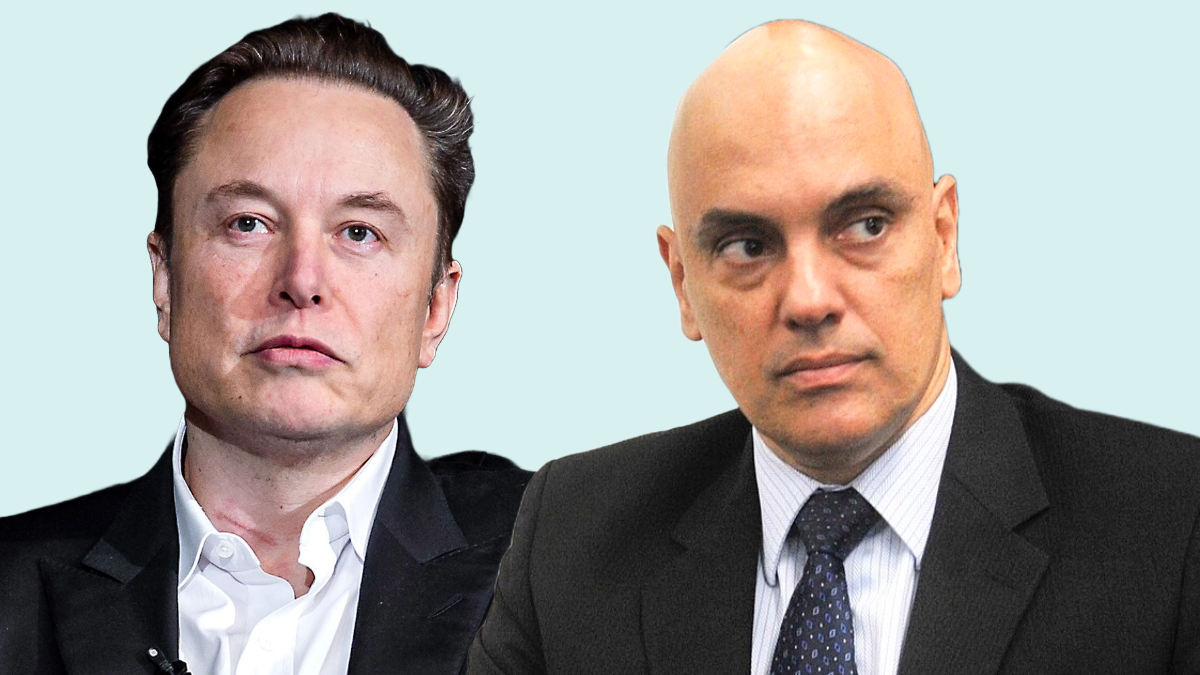X vs. Brazil: What Questions Remain After the Turmoil?
Iná Jost, Chico Brito Cruz / Oct 28, 2024
In the past months, Brazil became the arena for a clash between the country’s Supreme Court (STF) and Elon Musk. The situation escalated when X, the platform Musk owns, refused to block several accounts that, according to Justice Alexandre de Moraes, were performing acts of intimidation against law enforcement officers. Ultimately, X was suspended in Brazil for around 40 days. After complying with the content removal rulings that led to the blocking, as well as paying the corresponding fines, the suspension was lifted earlier this month.
What matters in the context of this episode? What can observers project for the future? The case reveals lessons and sharply divergent views around sovereignty, the rule of law, and freedom of expression around the world – and suggests at least three questions for digital policy ahead. One is about platforms’ compliance, another concerns the intertwinement around content regulation and infrastructure, and the last is about transparency, legitimacy, and the rule of law.
Context of the suspension
But first, context. Justice De Moraes has played a crucial role in Brazil’s politics over the last few years. In 2019, he was named by the then Supreme Court Chief to be the president of several special inquiries investigating online attacks on the Supreme Court (STF) and its justices, and attempts to overthrow Brazilian democracy. Those inquiries started directly within the Supreme Court through a procedure allowed when the body investigates violations of criminal law “under the premises” of the Court. These have been conducted by de Moraes mainly under seal and are ongoing in late 2024.
In addition, Justice De Moraes was the Chief Justice of the Electoral Superior Court (TSE) from August 2022 to June 2024. This body has relevant regulatory and enforcement powers to preserve electoral integrity. Under his presidency, TSE built a “social listening operation" and used it both to flag content for removal through non-judicial, platform-administered mechanisms as well as to order judicial takedown demands to platforms. Justice De Moraes’ work in both his TSE and Supreme Court capacities led him into conflict with Musk, but the escalation that led to the recent suspension of X happened through the former.
On August 7, Justice De Moraes, as president of one of the Supreme Court inquiries, ordered the removal of seven X accounts used to intimidate a federal officer. The intimidation escalated to offline threats. These orders were sealed, but Musk revealed them after X was suspended. X refused to comply, and fines rose to USD $26,000 per day. The Court also tried seizing X's assets in Brazil and later froze the accounts of Starlink, another of Musk’s companies, which the Court regarded as in the same “de facto” economic group as X. One week later, Justice De Moraes fined and ordered the arrest of X's legal representative in Brazil. Musk’s response was defiant: X was shutting down its operations in the country.
Additionally, X appealed the decision about the seven accounts, but on August 28, the Supreme Court upheld Justice De Moraes' decision, stating X couldn’t appeal on behalf of third parties (its users). Justice De Moraes then gave X just 24 hours to reestablish a legal representative in Brazil or face a shutdown. The order was posted on X, and Musk acknowledged it, replying with an AI-generated picture of toilet paper with Justice De Moraes' name.
On August 30, after X failed to comply again, the Justice demanded a full block of the platform. Although this was his sole decision, the suspension was confirmed a few days later by the other five Justices that compose the STF's First Chamber. The National Telecommunications Agency (Anatel) subsequently instructed infrastructure providers to disconnect Brazilian internet access to X’s service providers, and they complied, although there were some challenges along the way.
Within 20 days, however, the company began to rehearse a gesture of retreat. On September 20, the Brazilian press reported that X had reconstituted its legal representation in Brazil, and on October 8, Justice De Moraes lifted the suspension. X resumed operations after having complied with the account removals and paid judicial fines of BRL 28.6 million (approximately USD 5.24 million).
It is worth mentioning that the Brazilian Judiciary has a decade-long track record of considering blocks of internet applications as a rule of law enforcement tool. For instance, while on unique grounds, both WhatsApp and Telegram have been blocked or threatened with suspension in order to force them to comply with court orders. The country’s record on using this extreme measure is mapped by the observatory bloqueios.info.
How to block an app?
The technical aspects of the suspension raise important concerns about the connections between sovereignty, institutional capacities, and economic power. After De Moraes’s order, the National Telecommunications Agency (Anatel) had difficulties in enforcing the suspension due to its novelty. The agency required that all telecom providers operating in Brazil block X, but throughout the process, several instances of non-compliance were reported. The country has a vast number of internet providers of various sizes, with a granularity that challenges Anatel’s enforcement. Moreover, due to an apparent technicality, X briefly reappeared in Brazil back in late September after hiring Cloudflare’s services, raising concerns about the involvement of other service providers.
And then there is Starlink. Musk is Starklink’s majority shareholder and it has been providing satellite internet in territories in Brazil. While the owner is the same, the companies are different, and so are their operations. On the one hand, freezing Starlink assets is controversial. On the other hand, it should be noted that when X was disabled, the company declared that it would not comply with the order to block X. Although the next day they reversed that position, this behavior strengthens de Moraes’ argument that the two are part of the same "de facto" economic group.
The confluence of those complexities positions the conversation around “digital sovereignty” in a pressing but strategic place. It pushes countries to figure out how to navigate their infrastructure policy to ensure the enforcement of their national rule of law over foreign tech giants like X and Starlink. These considerations go beyond the usual controversy around free speech and surveillance under the West vs. East dichotomy.
Is the rule of law a menu to order what to comply with?
Musk’s selective non-compliance with judicial orders justifies scaling measures to enforce the rule of law – with the caveat that parts of the proceedings remain under seal, making a full analysis impossible. There was no other applicable measure to enforce the orders of the highest Court in Brazil, and if one order can be disrespected selectively by a non-trustworthy actor, the compliance of every order is at risk.
Who is to determine if Brazil is a “dictatorship” or not – or if companies should stop complying with law enforcement within a specific jurisdiction? Elon Musk’s (or any owner or stockholder) opinion about the Brazilian Constitution is still an opinion –but what if it transitions into performative civil disobedience?
The legal grounds for the decision to suspend X rest on Articles 11 and 12 of Brazil’s Marco Civil da Internet, its landmark regulation for the Internet. The Supreme Court had already determined that the interpretation of Article 11 under the Constitution is that companies must have a mechanism for law enforcement to reach them in Brazil if they offer their services to Brazilians or if any of the activities mentioned above happen in its territory. Thus, the core of the conflict is not the absence of legal representation in the country. This measure was crucial in compelling X to receive and comply with court orders. The problem — and the reason why X was blocked — was the failure to address De Moraes' orders for suspending social media accounts (considering that those accounts were allegedly being used to commit illicit activities).
But if the era of tech CEOs as democratic champions is well beyond over, what is next? The Brazil case makes evident that exporting US First Amendment-based business models and mindsets have not created a universal scale for what is a democratic rule of law standard – especially for democracies in distress.
A blank sheet accepts anything?
Brazilians often say that "a blank sheet accepts anything," meaning that anything can be claimed, regardless of the truth. Is the Brazilian Supreme Court similarly open to any innovation in its efforts to defend the country's democratic order? Could its legitimacy be at risk, and could its actions potentially backfire?
In other words, Justice De Moraes' unorthodox approach is losing its ability to justify itself in relation to its intended goals. Three aspects of the STF’s behavior contribute to this direction.
First, the secrecy of proceedings (which hinders transparency and accountability), along with precautionary decisions to suspend profiles indefinitely, undermines the principles of due process that support the Court's efforts to defend democracy. It is good to remember that there are parts of the proceedings that remain under seal up until today, hindering a complete analysis of the situation.
Second, the reasoning that platforms cannot appeal decisions that impact their users' expression or privacy (as mentioned above) is a concerning precedent for freedom of speech in Brazil. This ruling overlooks not only the potential harm this type of decision could inflict on the platform's own functions but, more critically, the essential role that internet companies must assume in safeguarding the rights of their users—particularly when those users lack the ability to defend those rights themselves.
Finally, much criticism has already circulated about the proportionality of Justice De Moraes’ decision concerning the blocking of VPNs and fines imposed on users. The original decision went way beyond the line when mandating the blocking of VPN applications; an analysis was shared by De Moraes himself, who later reconsidered. Although he retreated from this stance, the Justice still ordered the Brazilian Federal Police to monitor for circumventions to his order.
As much as tech policy activists, experts, diplomats, and executives want, the response to the “blank sheet” question will not be primarily given by their criticism. The answer will be determined by the way Brazilian civil society and politics receive and digest their anxieties and respond to Justice De Moraes’ actions while safeguarding its capacities to exist and resist the threats he helps to confront.
Related reading:
Authors

